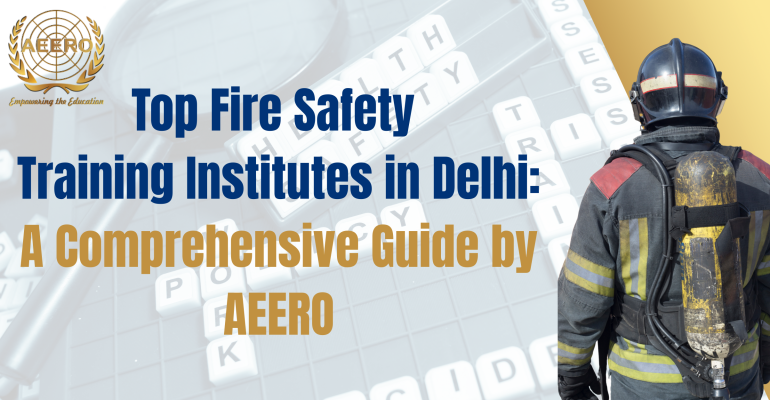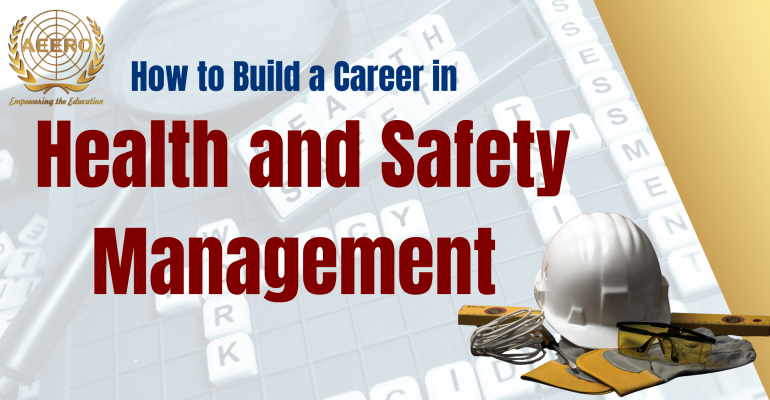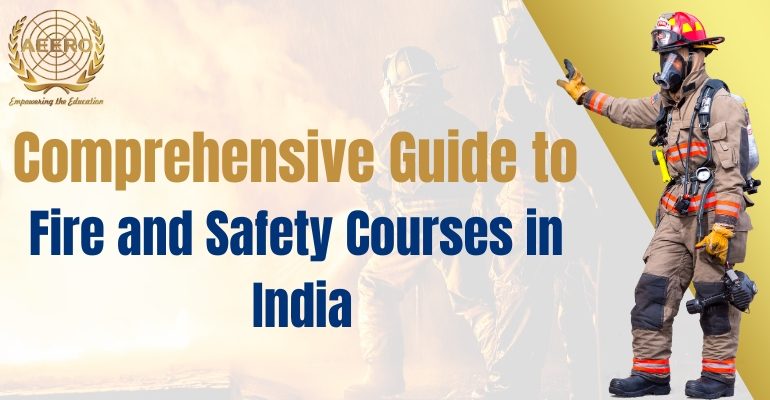Advance Diploma in Industrial Safety at AEERO 2025-26

Here’s the Table of Contents formatted in a table frame for easy reference:

Introduction
In today’s fast-paced industrial world, Industrial Safety plays a crucial role in ensuring the well-being of workers and maintaining a hazard-free environment. An Advance Diploma in Industrial Safety is a professional course designed to equip individuals with in-depth knowledge about safety protocols, accident prevention, and health management in industrial settings. With rising concerns about workplace safety, this diploma has become a necessity for professionals seeking to safeguard workers’ health and enhance organizational efficiency.
The course covers various aspects of safety management, risk assessment, and emergency response planning. This article dives deep into what the course offers, its benefits, and how it can help industries manage risks effectively.
Nutrients in Tabular Format
| Nutrient | Importance for Safety Workers |
|---|---|
| Protein | Helps in muscle repair and recovery after exertion |
| Carbohydrates | Provides energy for physically demanding tasks |
| Vitamins (B, C, D) | Boosts immune system and mental alertness |
| Minerals (Iron, Zinc) | Prevents fatigue and supports oxygen flow |
| Hydration (Water) | Maintains hydration, crucial for physical labor |
Calories in Tabular Format
| Activity | Calories Burnt (Per Hour) |
|---|---|
| Operating Heavy Machinery | 400-500 |
| Manual Lifting | 350-450 |
| Supervising Industrial Safety | 200-250 |
| Risk Assessment Walk-through | 250-300 |

Facts About Industrial Safety
- Industrial Safety Laws: Most countries have stringent laws regarding workplace safety, including the Occupational Safety and Health Act (OSHA) in the U.S.
- Accident Prevention: 80% of workplace accidents are preventable through proper safety training.
- Safety Equipment: The correct usage of safety equipment, such as helmets and gloves, can reduce injury risks by 70%.
- Human Error: Approximately 90% of workplace accidents are attributed to human error, which can be minimized with proper training.
Food Groups Important for Industrial Workers
To maintain high energy levels and sharp focus, industrial workers should include the following food groups in their diet:
- Proteins: Essential for muscle repair, especially after physically demanding tasks.
- Carbohydrates: Provide energy for long shifts in industrial settings.
- Fats: Healthy fats support brain function and long-term energy needs.
- Fruits and Vegetables: Provide essential vitamins and minerals for immune support.
- Hydration: Drinking sufficient water is vital to avoid dehydration during long hours of work.
Weight Management for Industrial Workers
Maintaining a healthy weight is essential for workers in physically demanding environments. Overweight workers are at higher risk of injuries and fatigue. An Advance Diploma in Industrial Safety teaches safety officers how to promote healthy living among workers, ensuring they are physically fit to handle the rigors of industrial labor.
- Balanced Diet: Encourage a diet rich in whole grains, proteins, and fresh produce.
- Exercise: Simple physical activities, such as walking or stretching, should be encouraged to improve flexibility and reduce strain-related injuries.
Disease Prevention Through Industrial Safety
Industries must focus on preventing diseases such as respiratory issues caused by dust, chemicals, and pollution. The Advance Diploma in Industrial Safety educates professionals on the best practices for disease prevention, including:
- Proper ventilation in workspaces.
- Regular health check-ups for employees.
- Use of Personal Protective Equipment (PPE) to prevent exposure to harmful substances.
Potential Side Effects of Poor Eating Habits
Poor nutrition can lead to decreased productivity, increased injury rates, and poor mental health among workers. Lack of essential nutrients affects concentration and physical endurance, which are crucial for those working in high-risk industrial environments.
Common Side Effects:
- Fatigue and reduced stamina.
- Weak immune response, leading to more sick days.
- Increased susceptibility to workplace accidents.
Mental Health and Industrial Safety
Industrial workers often face high levels of stress due to the physical demands of their jobs. Mental health is an important aspect of Industrial Safety that is often overlooked. Safety officers should ensure that workers are mentally fit to handle the demands of their roles.
- Stress Management: Regular workshops on stress management can help workers cope with their job’s mental strain.
- Mental Health Resources: Providing access to counselors or mental health professionals can reduce workplace incidents related to stress or mental exhaustion.
Food Allergies and Sensitivities
Food allergies can be life-threatening if not managed properly in industrial environments. A focus on safety extends to ensuring that workers are aware of potential allergens and have access to safe meal options in workplace cafeterias.
- Common Allergens: Nuts, shellfish, dairy, and gluten.
- Safety Measures: Implementing clear labeling in workplace kitchens and providing alternatives for those with allergies.
Industrial Safety and Type 2 Diabetes
Workers with conditions like Type 2 Diabetes face unique challenges in maintaining their health while managing their duties. The Advance Diploma in Industrial Safety covers how safety managers can support these individuals:
- Education: Offering training on managing blood sugar levels during long shifts.
- Medical Support: Ensuring that proper medical supplies, like insulin, are available at all times.
Conclusion
Pursuing an Advance Diploma in Industrial Safety is an excellent way to ensure that industrial workplaces are safe and productive. By focusing on preventing accidents, promoting worker health, and ensuring compliance with safety regulations, professionals equipped with this diploma play a critical role in modern industries.
FAQ
1. Who is eligible for the Advance Diploma in Industrial Safety?
Anyone with a background in engineering, management, or any technical field can enroll in the course.
2. What are the career prospects?
Graduates can become safety officers, health inspectors, or risk management specialists in industries like manufacturing, construction, and chemicals.
3. Is there a high demand for Industrial Safety experts?
Yes, with increasing workplace safety regulations, industries are actively seeking professionals with expertise in industrial safety.
4. What is the duration of the course?
Typically, the diploma takes 1 year to complete, depending on the institution.
5. What are the core subjects covered?
The course includes topics like risk assessment, accident prevention, health and safety regulations, and emergency response planning.











